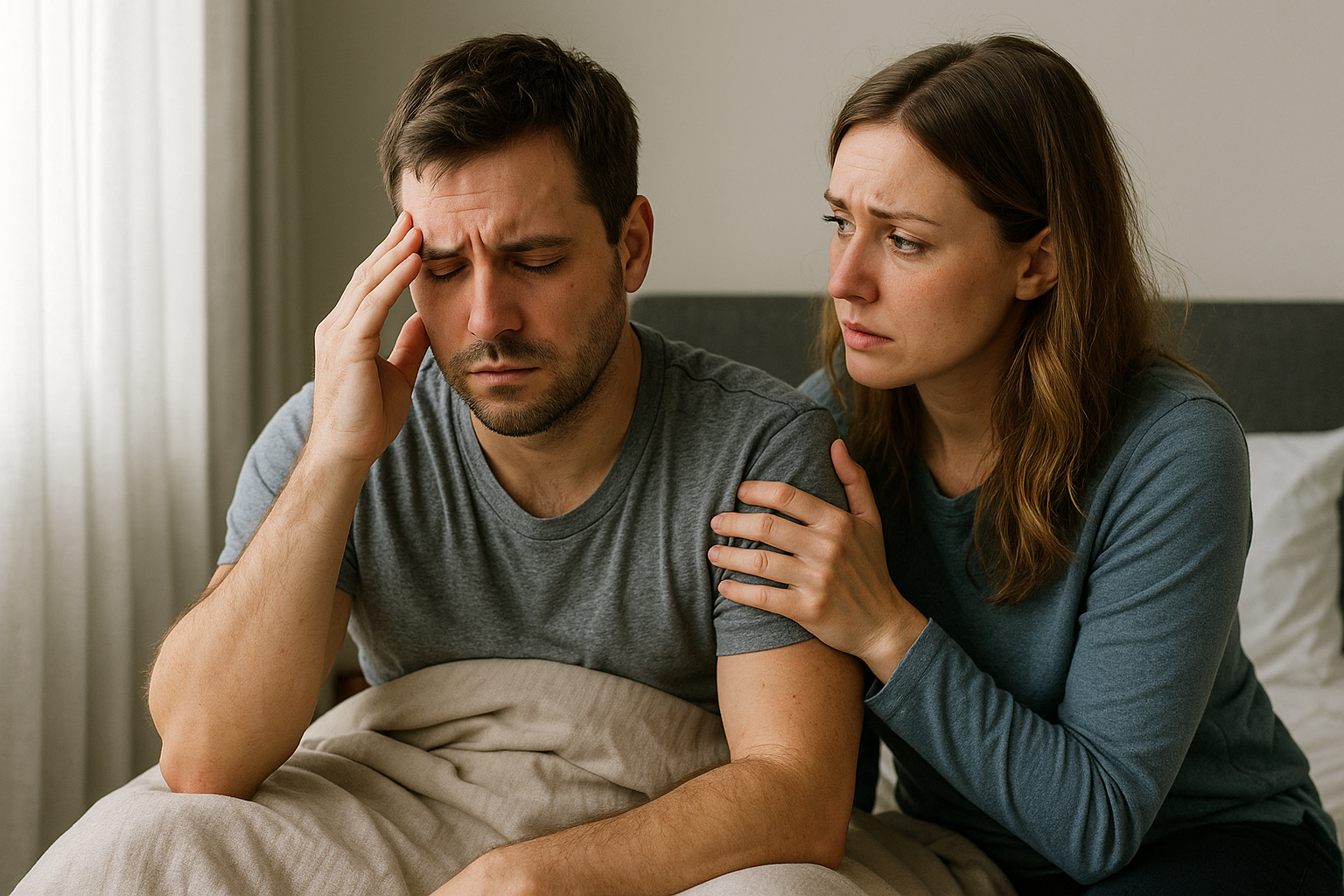Trusted by 10 Lakh+ Indian Men
Free, Fast, & Discreet Delivery
Monsoon Sale: Flat 10% off
Trusted by 10 Lakh+ Indian Men
Free, Fast, & Discreet Delivery
Monsoon Sale: Flat 10% off
Trusted by 10 Lakh+ Indian Men
Free, Fast, & Discreet Delivery
Monsoon Sale: Flat 10% off
Imagine having an orgasm that leaves you ill for several hours or even days! That’s when the tho...

Imagine having an orgasm that leaves you ill for several hours or even days! That’s when the thought of having orgasms or ejaculation leaves you tensed and scared. Post Orgasmic Illness syndrome or POIS is a rare but sometimes serious illness that mostly affects men. In fact many don’t even realise it until much later that they have the rare illness POIS and by then it has done considerable damage to their life and relationships.
Although the exact cause of POIS is still under investigation, researchers believe it may be linked to an autoimmune or allergic response to a man’s own semen, or to hormonal or neurochemical imbalances. Because POIS is not widely recognized, diagnosis can be difficult, and many men go undiagnosed for years.
Characterized by debilitating symptoms like mental fog, fatigue, muscle pain, and flu-like effects following ejaculation, POIS can significantly impact one's quality of life, relationships, and mental health.
Some of the other common symptoms of POIS include;
Trouble concentrating
Irritability or mood swings
Intolerance to cold
Dizziness
Gastrointestinal disturbances
Headache
While medical research is still catching up, many individuals have reported relief by incorporating natural strategies into their daily routine. In this blog, we explore five science-backed and community-recommended ways to manage POIS symptoms—without relying solely on prescription drugs.
Since POIS is believed to involve immune or allergic responses, supplements that reduce inflammation can be helpful.
Omega-3 fatty acids: Found in fish oil, they help reduce systemic inflammation.
Curcumin (Turmeric extract): Has strong anti-inflammatory properties and supports immune balance.
Quercetin: A natural antihistamine that may reduce allergy-like reactions in POIS.
Tip: Always consult a healthcare provider before starting new supplements, especially if you’re on medication.
There’s growing evidence that gut health plays a role in regulating immunity and inflammation—both key factors in POIS.
Probiotic-rich foods: Yogurt, kefir, sauerkraut, kimchi.
Prebiotic fiber: Found in bananas, garlic, onions, and oats.
Avoid triggers: Eliminate processed foods and excessive sugar that disrupt the microbiome.
A well-balanced gut may reduce the severity of post-orgasmic symptoms by strengthening your immune tolerance.
Stress and poor sleep often make POIS symptoms worse. Incorporating regular stress-reduction techniques can minimize flare-ups.
Mindfulness meditation (10–15 minutes a day)
Breathing exercises to reduce sympathetic nervous system activation
Gentle yoga or tai chi to regulate body and mind
These techniques calm the nervous system, potentially reducing inflammation and fatigue post-orgasm.
Some POIS sufferers report symptoms that mimic low testosterone or hormonal imbalances. While not a cause for everyone, supporting hormonal health can be helpful.
Ashwagandha: An adaptogen that helps regulate cortisol and testosterone levels.
Zinc & Magnesium: Crucial for hormone production and sleep quality.
Regular exercise: Moderate resistance training and cardio support hormonal balance and circulation.
If you suspect a hormonal component, consider testing your testosterone and thyroid levels.
This is not about avoidance but understanding your body’s threshold. For some, spacing out sexual activity or reducing ejaculation frequency dramatically reduces POIS severity.
Keep a symptom journal to track when symptoms occur, their intensity, and any lifestyle factors that may trigger them.
Explore non-ejaculatory sexual practices such as edging or tantra to stay intimate without triggering a POIS episode.
Communicate with your partner openly about your condition and limits.
POIS is real—and you’re not alone. While research is still evolving, many men have found symptom relief through holistic strategies focused on immune balance, stress reduction, gut health, and lifestyle changes.
If your symptoms are persistent or debilitating, consult a healthcare provider. Managing POIS may require trial and error, but with the right natural approach, many people experience significant improvement.